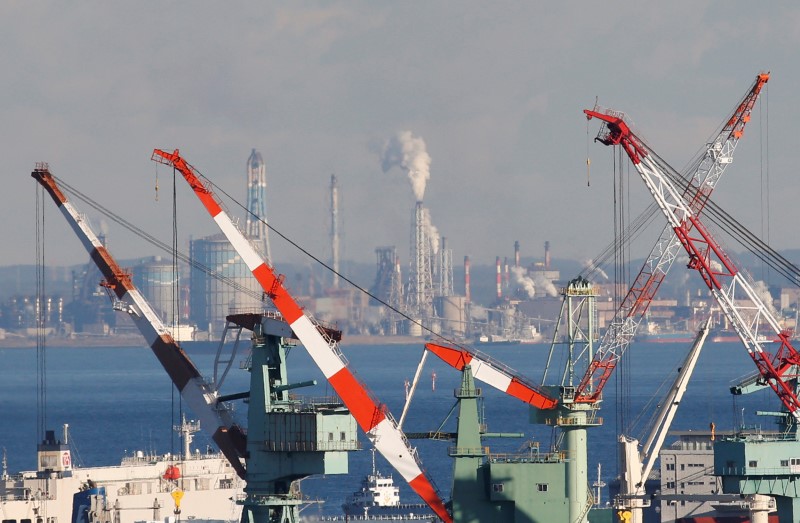TOKYO, (Reuters) - Japanese manufacturing activity expanded at a faster pace in April than the previous month as output and domestic demand picked up, in a sign the economy is recovering from an expected rough patch in the first quarter.
However, a private survey also showed export orders fell for the first time in more than a year and a half as a gradual appreciation in the yen starts to erode Japan's export competitiveness.
The flash Markit/Nikkei Japan Manufacturing Purchasing Managers Index (PMI) rose to a seasonally adjusted 53.3 in April from a final 53.1 in the previous month.
The index remained above the 50 threshold that separates expansion from contraction for the 20th consecutive month and rose for the first time in three months.
"Although new export orders declined for the first time since August 2016, as the stronger yen begins to impact price competitiveness, the rise in total new business inflows signals stronger domestic demand," said Joe Hayes, economist at IHS Markit, which compiles the survey.
The index for total new orders rose to a preliminary 53.5 from a final 53.1 in the previous month, but export orders shrank marginally, the contraction in external demand since August 2016.
The yen
Japan's economy is forecast to have expanded an annualized 0.5 percent in the first quarter as consumer spending and factory output weakened, according to a Reuters poll. That would be a marked slowdown from 1.6 percent annualised growth in the fourth quarter.
The world's third-largest economy has grown for eight straight quarters through the end of 2017, the longest continuous expansion since the 1980s bubble economy.
Most economists believe weakness in the first quarter will be temporary, but the value of the yen and any increase in trade frictions with the United States pose risks to the outlook.

The survey also showed Japanese firms continued to face sharp rises in input costs, but were able to pass on some of the increases to their customers.